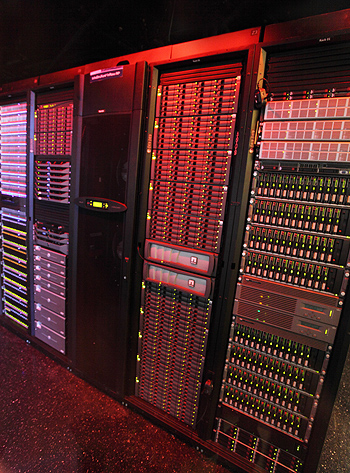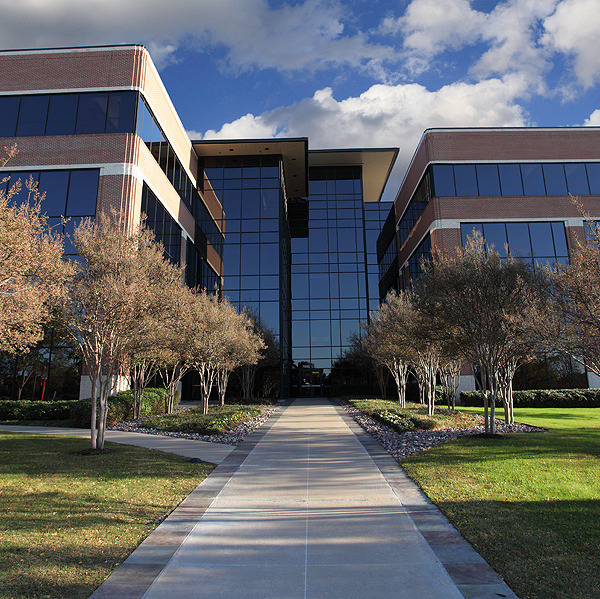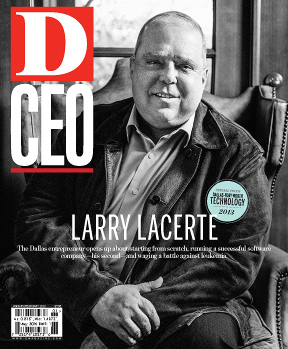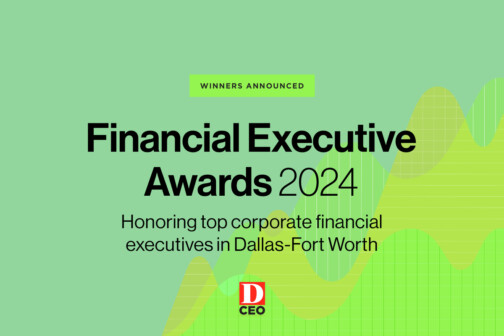The technology, first deployed rather unsuccessfully by Wal-Mart in 2003, will allow JCPenney to introduce self-checkouts, accurately monitor inventory, and “transform the customer experience,” JCPenney CEO Ron Johnson explained in a second-quarter 2012 earnings call.
It could be just what the doctor ordered for the struggling retailer, which is undergoing a marketing and technology overhaul.
“We’ve turned businesses around entirely,” Kimbel says. “It’s very energetic to see the stuff go into market that you’ve created. We’re working on changing how even gasoline pumps are being done. It’s cool to walk up and know your team had a finger in making that change occur.”
NEW INFUSION
Kimbel is a Microsoft company man with 14 years under his belt, working his way up from consultant to regional director in Atlanta. He moved to Dallas-Fort Worth five years ago to lead Microsoft’s core infrastructure sales team in Irving. In July 2011 he took over as director of the MTC, which he says got off to a slow start here.
Since his arrival, he’s redesigned the MTC space to radiate a digital lifestyle vibe. The main areas are equipped with two Microsoft Xbox 360s, which come with popular games like Halo, but can also stream TV shows and movies. There’s an area for visitors to print their boarding passes or check their email, and table-sized touch screens. It’s hard to ignore the fresh chocolate-chip cookie smell wafting through the halls. That’s dessert for the daily flow of visiting customers who meet in one of the 11 conference rooms named after Texas sports teams.
With only eight MTC staff members—and no plans to hire any more—the rooms slightly outnumber the employees. The partners share the space, so they’re rarely vacant for long. The technology centers aren’t meant for consulting, but rather are designed to help customers envision what could be possible. For that reason, the MTC says, it’s choosy about who uses its services.
Here’s how it works:
Customers are handpicked by the MTC account executives to discuss their business problems and technology issues. These companies want to grow, increase productivity, improve safety, or use their enterprise technology agreements to the fullest. They’re just not sure how to get started. The MTC’s top request, however, is managing big data. Companies are inundated with so much data that they can’t figure out what to do with it.
Most sessions begin with a strategy briefing that resembles psychological therapy.

Next comes what the MTC calls the envisioning stage. Sorgen says it’s the “twinkle in the eye” for many customers who have an idea and want to see if it’s possible to execute.
Many executives are seeking quick answers—say, before the corporate board meeting next month. The MTC architects spend time understanding the problem and, typically within a week’s time, put together a solution.
Customers “bring in an application or database that’s not Microsoft and ask us how to wrap a whole new world around this older technology,” Sorgen says. “There are big parts of their business that they need to keep in place, but they want to engage with that information in new ways.”
The final stage is proof of concept, which shows customers their solution in action. Using the $12 million partner gear and Microsoft tools, the MTC creates a setting to replicate a customer’s environment.
If a customer wants more computer power or space, for example, the MTC taps into its private, on-premise cloud to add more. Two years ago the same request would have taken days or weeks to physically move cables and boxes, Kimbel says.
Like the MTC’s other demonstrated innovations, the cloud solution is offered up gratis. It’s a tradeoff the MTC is willing to accept—especially if the interaction results in a sale. Kimbel says the MTC’s “rate of closure” with customers through October of 2012 was 90 percent to 95 percent, a 132 percent increase over 2011. Simply put, the MTC sessions help seal the deal for a Microsoft product sale.
The sessions are also good for MTC’s partners, who are notified if any of their gear is used in a customer “experience.” Says Kimbel: “I don’t know if they chose to buy Dell hardware, but Dell will know that X customer was here and used their stuff.”
MICROSOFT’S MAGIC
The MTC is a small piece of Microsoft’s operation in North Texas, the company’s third largest in the country behind the headquarters in Redmond, Wash., and another location in Silicon Valley.
Microsoft first came to Dallas in 1991, eventually moving into the first building of two on its Irving campus in 1999. Those two buildings are among the few pieces of real estate that Microsoft owns besides its headquarters, Sorgen says.With nearly 1,650 employees, Microsoft is invested in the Dallas-Fort Worth area. It was first attracted to the area’s rich talent pool, low cost of living, and easy accessibility, not to mention a strong customer base, Sorgen says. Irving has more than 8,500 companies, including the global headquarters of five Fortune 500 companies.
Dankesreiter of the Dallas chamber says most people don’t realize how large the Microsoft operation is here, or what it means for the local economy.
“There are so many things tied to having them here in the D-FW region,” he says. “From a talent perspective and pool of people they are attracting, to the connections of their partners, I think that’s a huge asset for our region.”
Bill Sproull, president and chief executive of the Metroplex Technology Business Council in Richardson, agrees. Microsoft is actively supporting innovation here through its involvement on various tech councils and in the business community, he says. “They’ve been a great corporate citizen and contributor and embraced our ecosystems here,” Sproull adds. “We’re all better for it.”






